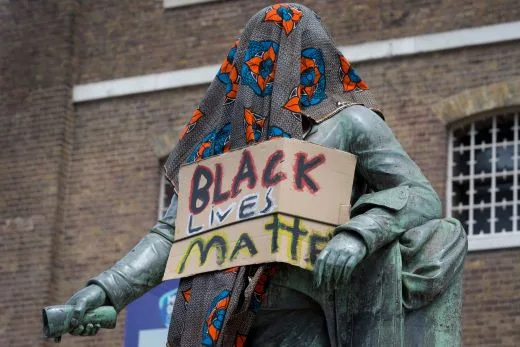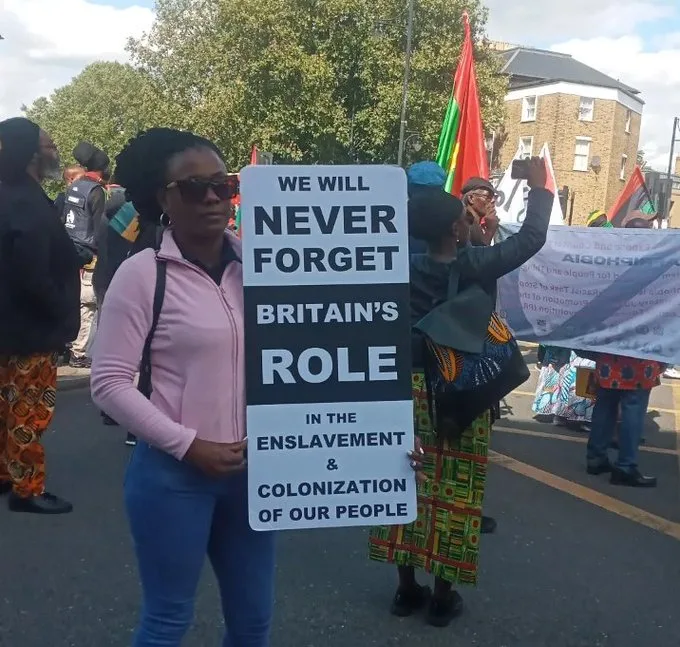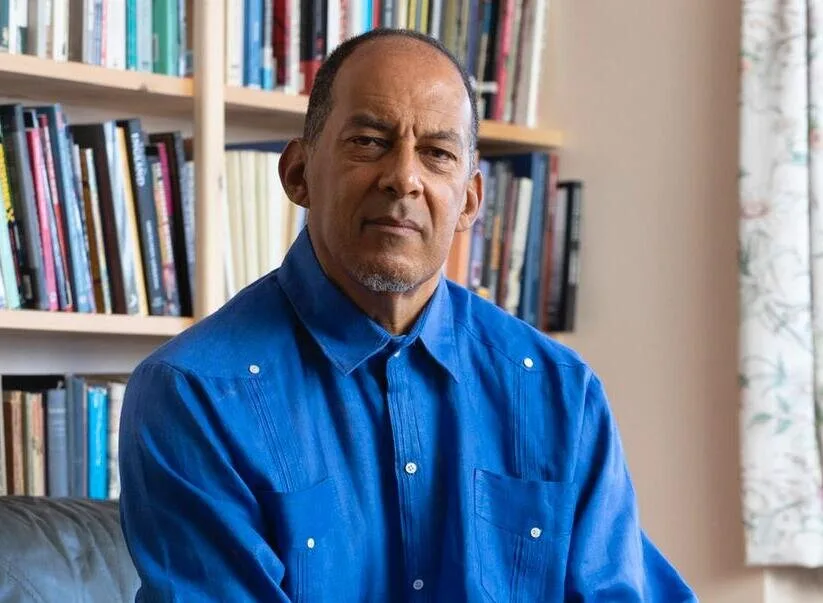MAYOR OF London Sadiq Khan has revealed he has given the go-ahead for plans to erect a memorial honouring victims of the Transatlantic slave trade.
The memorial is likely to be located at West India Quay, in the Docklands, which is associated with the horrific period.
Speaking to The Voice, Khan also said education can play a vital role in helping all sections of society address the continuing legacy of the Transatlantic slave trade in modern Britain.
Khan is hosting a special reception and ceremony at London’s City Hall tomorrow to mark the International Day for the Remembrance of the Slave Trade and Its Abolition.

The day is an initiative introduced by UNESCO in 1998. It is aimed at honoring those who were victims of the trade, those who fought and campaigned for the trade’s abolition and highlighting its continuing impact on Black people around the world.
The City Hall event follows an announcement of the memorial, which is set to cost £500,000.
Discussions about the new memorial began following the Black Lives Matter demonstrations in the summer of 2020 which saw protestors demand the removal of a memorial honouring 18th-Century slave owner Robert Milligan. The new memorial will be erected nearby.
National Museums Liverpool (NML) also announced plans to observe Slavery Remembrance Day with a Walk of Remembrance and a week of events. These include the 2023 Dorothy Kuya Slavery Remembrance Memorial Lecture at Liverpool Town Hall, which will be delivered by Professor Hakim Adi from Chichester University.
In an interview with The Voice ahead of the City Hall event Khan said: “We know all too well the impact that this shameful chapter of human history continues to have across our society, with structural and institutional racism still limiting the life chances of far too many Black people.
“We have seen it in the stark inequalities and injustices exposed by the pandemic, and continue to see it with the cost-of-living crisis.”

Khan continued: “In London, we’re committed not just to tackling systemic inequalities, but to doing everything we can to eliminate them once and for all. From ensuring our public realm is more representative, and helping businesses diversify and become genuinely inclusive; to opening up new pathways into careers and the world of work for young Black Londoners, and making City Hall a proactively anti-racist organisation.
“I sincerely believe that together we can bring about transformative change and build a more just society.”
The theme behind this year’s International Day for the Remembrance of the Slave Trade and Its Abolition is ‘Fighting Slavery’s Legacy of Racism Through Transformative Education’.
Khan said that this theme has provided the focus for much of his work on tackling racism in recent years.
“The focus on fighting the horrendous legacy of slavery through transformative education is particularly relevant to our capital” he said. “Learning about the slave trade is crucial to deepening our understanding of why structural inequalities and unconscious bias persist. Transformative education seeks to empower people to view society through a critical lens, so they can challenge the status quo, stand up for their rights, and call out racism when and where it arises.

“That is why I have called upon the government to ensure the National Curriculum better reflects the diversity of our country as young people should be given a more complete perspective on our nation’s heritage. This means every teacher should feel supported to facilitate open and honest conversations about all aspects of history and race, and that exam boards should include diverse authors, artists and musicians within their syllabuses.
He added: “We have already taken steps towards this in London by working with The Black Curriculum to ensure schools are given the tools and support they need to empower a new generation of Londoners to strive towards a fairer, more equitable city.
I sincerely believe that together we can bring about transformative change and build a more just society.
Sadiq Khan, Mayor of London
“As irresponsible leaders attempt to stoke up division across our nation and across the world, it is vital that we all take the opportunity now to ensure we learn the lessons from history so that tragedy and violence on this scale are never to be repeated.”
Professor Adi told The Voice: “There is still the need to repair the damage done by that great crime, and particularly, here in Britain, because Britain was a leading player in the Transatlantic slave trade, responsible for trafficking more African men, women and children across the Atlantic than any other major power in the 18th Century.
“The great wealth, which allowed Britain to transform itself into a major industrial power grew and developed out of the trafficking and labour of African women, children and that is very often forgotten.”
Adi continued: “One thing, which the UN has pointed out this year is that it’s also important to remember the kind of continuing legacy of this whole system of exploitation. What was started 400 years ago creating an unequal relationship between Britain and Africa and the Caribbean still exists.

“It has also created a system of inequality in this country that still exists so when we talk about repair, or about reparations there’s a real necessity of repairing all of this.”
Recent years have seen a growing momentum for reparations and an acknowledgement of the continuing legacy of the Transatlantic slave trade.
In July, Caribbean and African leaders gathered in Barbados to demand reparations from Western nations who were heavily involved in the trade.
Those present at the landmark meeting drew parallels between the atrocities of slavery and many current social and economic problems their nations and Black people around the world faced.
The meeting was inspired by an African Union decision in February to formulate a “programme of action” on reparations and a Caribbean Community (CARICOM) 10-point plan urging former colonial powers to apologise for their roles in the slave trade and provide reparations.
Dutch King Willem-Alexander recently apologized for the Netherlands’ involvement in slavery involvement, while in April King Charles endorsed research that would examine the British monarchy’s role in the slave trade.
Also in April Portugal’s President Marcelo Rebelo de Sousa said his country should apologise for its involvement in slavery. However a number of high profile reparations campaigners have claimed that the apologies mean little without substantive actions to address its legacy.


